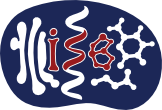Lee YG, Guruprasad P, Ghilardi G, Pajarillo R, Sauter CT, Patel R, Ballard HJ, Hong SJ, Chun I, Yang N, Amelsberg KV, Cummins KD, Svoboda J, Gill S, Chong EA, North K, Church SE, Fraietta JA, Chang WJ, Lacey SF, Lu XM, Zhang Y, Whig K, Schultz DC, Cherry S, Gerson J, Schuster SJ, Porazzi P, Ruella M. Modulation of BCL-2 in Both T Cells and Tumor Cells to Enhance Chimeric Antigen Receptor T-cell Immunotherapy against Cancer. Cancer Discov. 2022 Oct 5;12(10):2372-2391. doi: 10.1158/2159-8290.CD-21-1026. PMID: 35904479; PMCID: PMC9547936.
Abstract
Chimeric antigen receptor T-cell (CART) immunotherapy led to unprecedented responses in patients with refractory/relapsed B-cell non-Hodgkin lymphoma (NHL); nevertheless, two thirds of patients experience treatment failure. Resistance to apoptosis is a key feature of cancer cells, and it is associated with treatment failure. In 87 patients with NHL treated with anti-CD19 CART, we found that chromosomal alteration of B-cell lymphoma 2 (BCL-2), a critical antiapoptotic regulator, in lymphoma cells was associated with reduced survival. Therefore, we combined CART19 with the FDA-approved BCL-2 inhibitor venetoclax and demonstrated in vivo synergy in venetoclax-sensitive NHL. However, higher venetoclax doses needed for venetoclax-resistant lymphomas resulted in CART toxicity. To overcome this limitation, we developed venetoclax-resistant CART by overexpressing mutated BCL-2(F104L), which is not recognized by venetoclax. Notably, BCL-2(F104L)-CART19 synergized with venetoclax in multiple lymphoma xenograft models. Furthermore, we uncovered that BCL-2 overexpression in T cells intrinsically enhanced CART antitumor activity in preclinical models and in patients by prolonging CART persistence.

